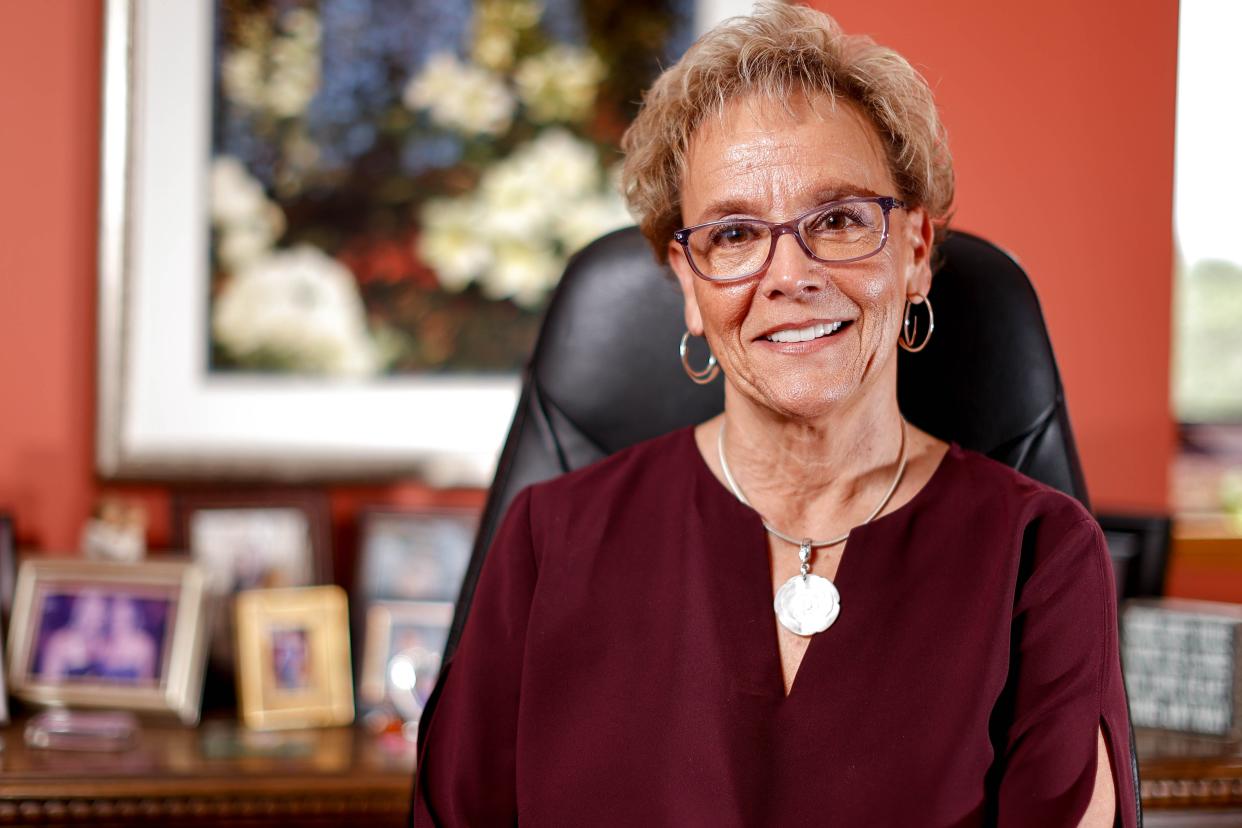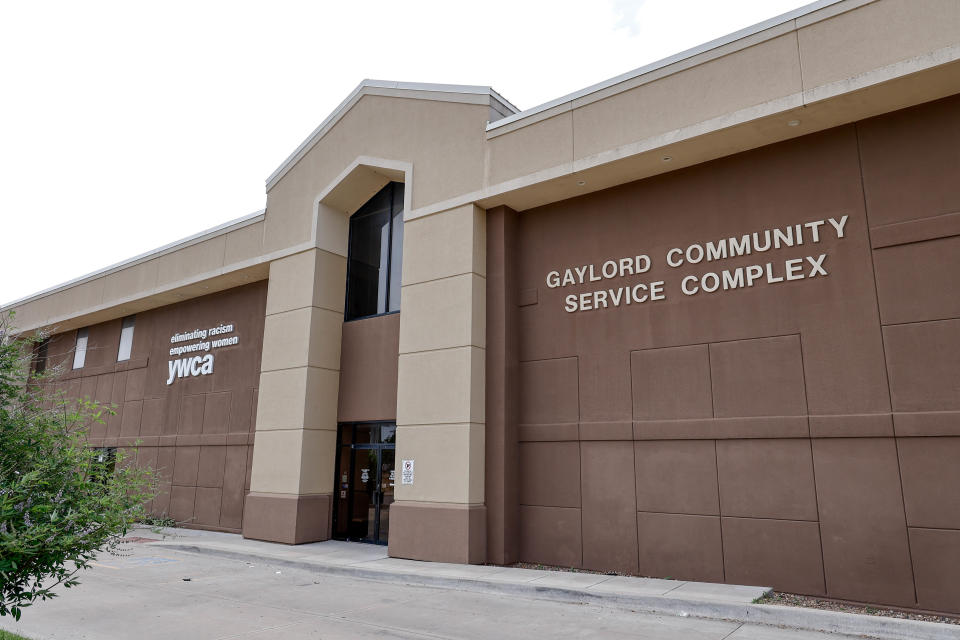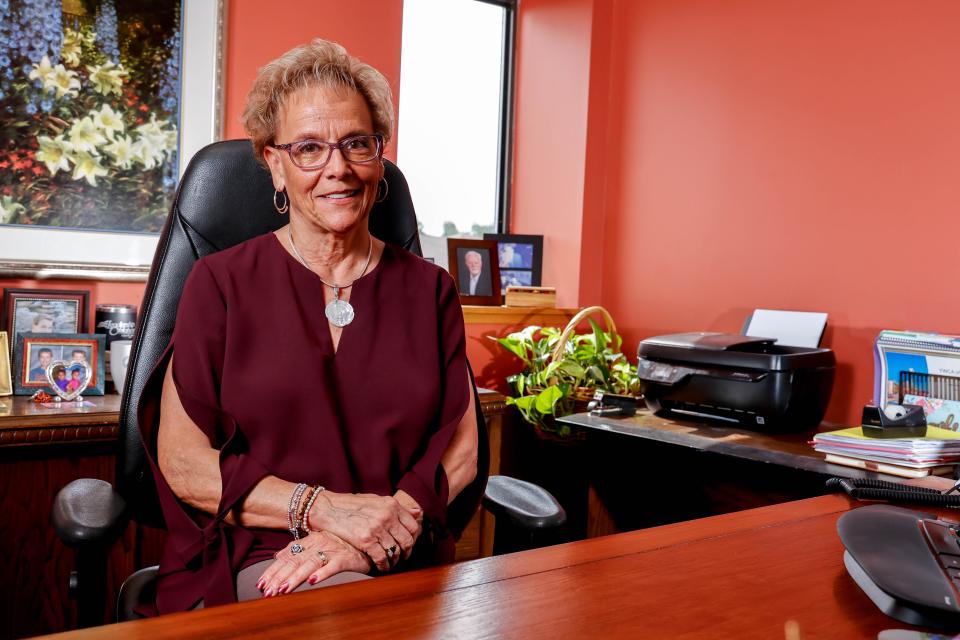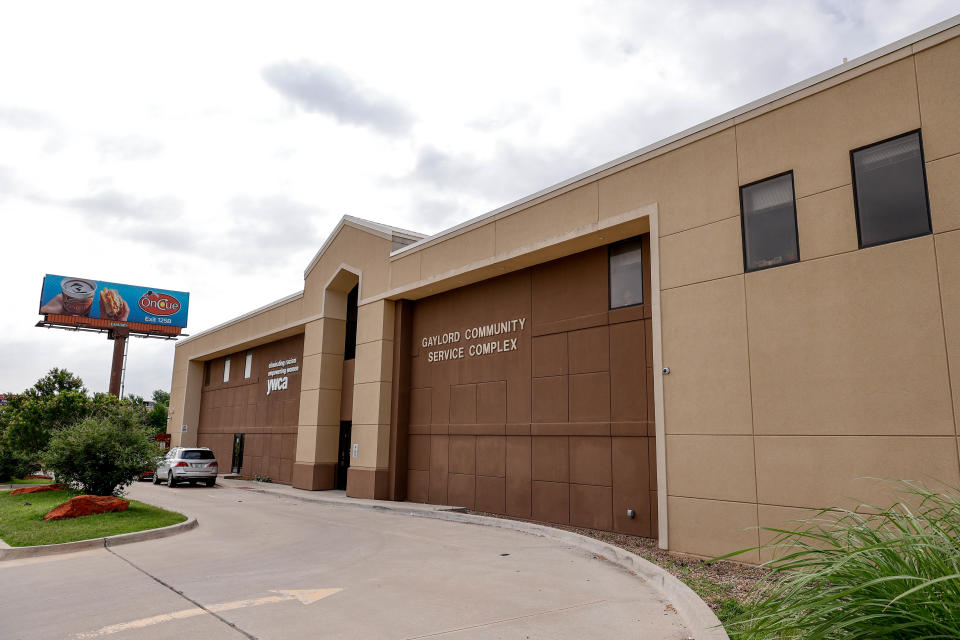Longtime head of OKC YWCA retiring after decades of effort to reduce domestic violence

For more than 27 years, Jan Peery has squared off with one of Oklahoma's most persistent problems ― the number of women's deaths caused by domestic abuse.
Peery has served as chief executive officer of the Oklahoma City YWCA since 2004, starting as a part-time worker in the agency in 1997.
Now, after nearly three decades of working to provide care and hope to victims of domestic violence, sexual assault and stalking, she said she is ready for retirement. The YWCA board has established a search committee to find a new CEO.
Even though she's leaving, Peery knows her work isn't finished.
"You can't turn a ship around on a dime," she told The Oklahoman in a recent interview. "It's not OK in Oklahoma. I want to see changes continue to be made in our state, and hopefully, I'll be able to, in some small way behind the scenes, to be a part of those changes."
In 15 of the 24 years between 1996 and 2020, Oklahoma was ranked in the top 10 states with the highest numbers of women killed by men, a 2023 report from the Violence Policy Center indicated. The center is a national nonprofit educational organization that works to stop gun deaths and injuries through research, education, advocacy and collaboration.
In Oklahoma, the report said, Black women were murdered by men at a rate nearly three times as high as white women, and they’re more likely to be killed by a spouse, intimate acquaintance or family member than by a stranger.
Oklahoma’s Domestic Fatality Review Board found the state averaged 114 domestic violence homicide victims per year between 2019 and 2022. That’s an increase from the average of 90 between 2011 and 2018.
In its 2023 annual report, the attorney general’s Domestic Violence Fatality Review Board identified 2,241 domestic violence fatalities between 1998 and 2002. The board described the outlook in the Sooner State as “bleak,” adding that Oklahoma was experiencing a “domestic violence epidemic.”
“We have to look at how this is impacting generation after generation," Peery said. "At some point, we have to stop and say enough is enough.”
Why is domestic violence so big a problem in Oklahoma?
Several sources said multiple factors contribute to the state’s continued high ranking. The least popular to talk about is Oklahoma’s status as a gun-toting state, sources told The Oklahoman.
Oklahoma ranks 11th in the nation for firearm ownership rates, according to the Violence Policy Center report and more than half of women murdered by men were killed with a firearm, with three-quarters killed with a handgun.
Kim Garrett-Funk is the chief visionary officer and founder of the Palomar Family Justice Center in Oklahoma City. Her organization provides wraparound services to victims of domestic violence, child abuse, sexual assault, stalking, elder abuse and human trafficking.
Garrett-Funk said a major element in the rise of domestic violence in Okahoma was easy access to guns. She said guns are involved in more than 70% of domestic homicides.
“When you have a rage-filled abuser with easy access to a firearm, it’s five times more likely to become a homicide,” she said. “We’ve seen a lot of cases in the last few years where they’re not just killing their intimate partner, but they’re killing their children, too.”
Other components of the epidemic include the state's high poverty levels and a lack of access to basic services and needs like food and housing ― all of which contribute to stressful situations that erupt, said Colleen McCarty, an attorney and founder of the nonprofit Oklahoma Appleseed Center for Law and Justice in Tulsa.

Peery said domestic violence and sexual assault crosses all social, economic, ethnic and religious boundaries and can impact a child's academic progress. Domestic violence and sexual assault also can be a precursor for child abuse and neglect, homicides and even a predictor for juvenile delinquency and future adult criminal behavior.
Often, Peery said, children exposed to domestic violence are at risk of sexual abuse. The problem impacts teen pregnancy rates, school dropout rates, mental health and substance abuse ― all areas where Oklahoma ranks poorly.
She pointed to another factor in the the state's high rate of domestic abuse: its location in the Bible Belt. In many ways, she said, religion has kept victims silent and in place.
“I think we still have a lot of work to do in our faith communities to say that God does not want us unequally yoked,” Peery said.
Attorney Leslie Briggs, the legal director at the Appleseed Center, said interventions in domestic violence situations have to start earlier. For example, she said the state needs more programs in comprehensive sex education, including programs that demonstrate what a healthy relationship looks like. Briggs said the state needs to educate young people so they can identify abusive behaviors in a relationship and avoid or redirect those actions before they can become ingrained.
“People think of comprehensive sex education as just teaching kids how to have safe sex, but it’s a much broader spectrum of curriculums, including healthy relationships and breaking the cycles of abuse and trauma,” Briggs said.
What's being done to reduce domestic violence?
Changes in laws related to domestic violence have been slow to come, and domestic violence wasn’t even considered a crime in Oklahoma 20 years ago, said McCarty, the Appleseed Center's founder.
“It’s really just sort of something that law enforcement and people looked at like that’s just happening in the home and that’s not any of our business,” she said.
Briggs noted Oklahoma didn't outlaw marital rape until 1993. She said it has just been within the last generation the state decided interrelational violence of that type was criminal. And while many lawmakers say they want to solve the problem of domestic violence and sexual assault, Briggs said often the only solution being put forth with any regularity is harsher criminal punishment, which is not really achieving anything.
“We’ll never incarcerate our way out of this domestic violence problem. We need trauma informed practices,” she said.
McCarty agreed. She said Oklahoma needs "a more restorative way of looking at the problem." Therapy is needed by those who commit harm, just as much as victims of crime, she said.
With a push from many advocates, Oklahoma finally classified domestic violence as a violent crime in 2022, McCarty said. The law includes such offenses as domestic abuse by strangulation, domestic assault with a dangerous weapon, domestic assault and battery with a dangerous weapon, and domestic assault and battery with a deadly weapon.
In 2023, the state classified domestic violence on a pregnant woman as a felony, Garrett-Funk said. She said Oklahoma City Police Chief Wade Gourley supported the efforts she and others made to achieve that change. McCarty said statutory changes in criminal laws have not been a perfect solution, since they don't help Oklahoma’s high incarceration rate and do not address behaviors that contribute to domestic violence in the first place.
“Domestic violence has become like a societal issue that we recognize as a problem and recognize as a crime, but I would still say that the interventions and the prosecution methods have been largely ineffective at dealing with the problem,” she said.
Another recommendation, improving the 911 system so dispatchers are trained on how to respond to domestic violence calls, is the goal of the Haiden Fleming Memorial Act, which became law in 2023. The bill allows for infrastructure, computer upgrades, CPR training, equalized fees charged for the service, and an updated fee structure, which might allow communities to hire more dispatchers. The state’s 911 system was last updated in 1975.
The attorney general's Domestic Fatality Review Board also recommended more funding for groups like the YWCA. It reported that annual funding for the AG's 53 certified domestic violence and sexual assault service programs averaged about $6 million from 2016 to 2024. The programs received an additional $3 million in 2023 and 2024, but once the funds were divided equally among the certified programs, it provided only a slight increase in an otherwise historically underfunded area.
Garrett-Funk said the Palomar Family Justice Center isn’t funded by the state. She said victim service providers have always worked on a shoestring budget.
“We’re always treading water,” she said. “It’s like you can’t almost get ahead of it because you’re always trying to find funding to make sure this person has their job and make sure this shelter stays open.”
The funding shortage has been compounded by recent steep cuts in federal grants supporting intervention services in the state.
Attorney General Gentner Drummond pointed to data from the District Attorneys Council, which showed total federal allocations in 2023 to four victim services-related federal grants was 52% less than it was in 2018, a drop from $44.2 million to $21.2 million.
The state's budget for Fiscal Year 2025, recently passed by the Legislature and signed into law, includes a $10 million increase to domestic violence and sexual assault programs under the office of the attorney general, bringing the total up to $17 million. Drummond said he was pleased with the increase because state funding has been stretched thin.
“The increase in funding enacted by state legislators this session will go a long way to offset some of these cuts and, in some cases, likely will be the difference between closing or keeping the doors open for certain programs,” Drummond said.
Another measure was designed to stabilize funding for programs that fight sexual assault and domestic violence. Senate Bill 2039 creates a revolving fund for the new total of $17 million to go through the new formula outlined in that bill and creates a way to fund both urban and rural domestic violence and sexual assault programs, as well as a way to properly add newly certified programs into the formula. Gov. Kevin Stitt signed the bill on Friday.
What's being done to help the victims of domestic violence?
While stopping or reducing domestic violence is the fundamental challenge, a parallel effort has been helping the victims of that violence.
Garrett-Funk started a victims' services unit at the Oklahoma City Police Department after seeing families come in at night, afraid they would be killed. At the time, all the department had to offer were a lot of pretty brochures directing people to many different places, she said.
“At about the third brochure, they’d glaze over and look at me and like they’re just overwhelmed,” she said.
The police department unit evolved into the Palomar Family Justice Center, which brings agencies offering different services for victims together in one place, allowing the professionals to meet each other and become more efficient and collaborative on working to protect domestic violence victims. There are now four other centers, Garrett-Funk said.
“That’s what survivors want. They want people to work together for better outcomes,” she said. “I wholeheartedly believe we’ve saved lives because of our collaborative.”
Oklahoma took another step forward this year, becoming the second state in the nation to reduce criminal sentences for domestic violence victims who defend themselves against their abusers.
The Oklahoma Survivors Act requires courts to consider such mitigating factors as whether the person convicted has been abused physically, sexually or psychologically by a sexual partner, family member, member of the household, trafficker or someone who used the person for financial gain.
It comes after much advocacy work by McCarty and Briggs, who started a podcast about an Oklahoma woman named April Wilkens, who is incarcerated at Mabel Bassett Correctional Center. Wilkens is in prison for killing her fiancé and testified that he handcuffed and raped her in 1998. However, she couldn't use evidence of domestic abuse in her appeal for early release, The Oklahoman reported last year. Now, victims can apply to be resentenced and McCarty estimated there are about 75 to 150 cases that could be eligible.
McCarty and Briggs based their proposed law on New York’s Domestic Violence Survivors Justice Act in 2019. That bill took 10 years to pass. Since then, about 39 people have been re-sentenced, and many of those were the result of domestic violence victims lashing out against their abusers and then receiving a prison sentence, McCarty said.
Similar bills in Louisiana and Oregon have been discussed, but neither state has passed that legislation yet.
“You ideally would never want a survivor of domestic violence to be in the situation where they’ve committed a crime that stems from their abuse, but it happens all the time here because oftentimes people don’t feel like they can involve law enforcement or when they have tried to, [it] wasn’t effective,” McCarty said. It takes people nine times to leave an abusive relationship, and that’s the most dangerous time because the situation could escalate, she added.
The law won’t directly reduce the types of crimes that are happening, she added, but it does allow survivors to have an extra layer of protection once all those other systems have failed.
Rep. Jon Echols, a R-Oklahoma City, the longest-serving majority floor leader, authored the 2020 legislation changes and was House author on the Oklahoma Survivors Act, said he’s optimistic Oklahoma can reverse the trend because it’s recognized and talked about.
A majority of victims are women, but domestic violence can go both ways in any relationship, he said. To address it from a legislative perspective, Echols said the first two objectives were punishing the perpetrator and supporting victims. A third objective is creating an environment where it’s OK for people to come forward, but that part is hard to legislate and comes from the hard work of nonprofits like YWCA, Palomar Family Justice Center, and programs like Parent Promise, an organization that helps support parents with resources.
“You can’t stop domestic violence without men doing it because we’re doing most of the perpetrating,” Echols said. “Men have to take responsibility for stopping it. I didn't necessarily say leadership, I said responsibility.”
Echols said Survivors Act was a result of many different parties coming together. He cited the legislators like Senate Pro Tem Greg Treat, Oklahoma Appleseed Center for Law and Justice, the Domestic Violence Coalition, Sue Ann Arnall of the Arnall Family Foundation, the District Attorneys Council and many others.
He said the real champion of the bill was Rep. Toni Hasenbeck, R-Elgin who originally filed it in 2023, adding that without the work she did the year before, it wouldn’t have gotten done.
Even though Echols is term-limited, he gave his fellow legislators a charge to listen to the experts, take a stand and get the measures on the floor.
“We need to feel some type of a responsibility to leave things better than we found it,” he said, adding he wants to stay involved with community organizations. “I believe we can change it, but it’s going to take everybody.”


This article originally appeared on Oklahoman: Domestic violence remains major challenge in Oklahoma as CEO departs

